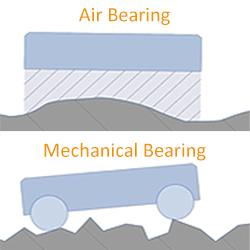Machine Tool Break Detection without Breaking the Bank
HEIDENHAIN’s new TD 110 is a fast reliable in-process gage to check tools
Specially designed for quickly sensing tool breakage during use within a machine tool, HEIDENHAIN CORPORATION introduces the new TD 110 Tool Breakage Detector. Providing contact-free inspection of drill bits and end mills, it can determine whether a tool is broken off by more than 2mm as it passes within a machine tool, yielding significant time and money savings.
The breakage sensor can then generate either a floating or an HTL switching signal and the machine control can evaluate it via standard instruction sets. These signals/outputs can be used to connect to a HEIDENHAIN TNC control or a PLC or to any other IOs of nearly every CNC control manufacturer. In addition, an LED signals whether a tool has been flagged.
Overall benefits of the HEIDENHAIN's new TD 110 tool breakage detector include:
• Maintenance-free sensor for reducing non-productive time for breakage inspection.
• Cooling lubricant and lightly contaminated tools are tolerated.
• Universally retrofittable thanks to standard interfaces for tool touch probes.
About HEIDENHAIN
DR. JOHANNES HEIDENHAIN GmbH, headquartered in Traunreut, Germany, develops and produces linear encoders, angle encoders, rotary encoders, and CNC controls as well as software solutions for the Digital Shop Floor. More than 8,600 employees worldwide are working on products that often lay the groundwork for technological advances in the most innovative global industries, including semiconductors, electronics, machine tools, and production equipment automation. The North American subsidiary is HEIDENHAIN CORPORATION, headquartered in Schaumburg, IL, and San Jose, CA. Here nine company brands are represented. More: www.heidenhain.us/about-us
Featured Product

PI USA - Gantry Stages for Laser Machining and Additive Manufacturing
High performance gantry systems, from PI, are used in precision assembly, laser machining, and additive manufacturing. Complete with software and state-of-the-art EtherCat® motion controllers. Easy to program, easy synchronization with lasers and dispensers. Standard and custom, compact systems and large, granite-based units.
